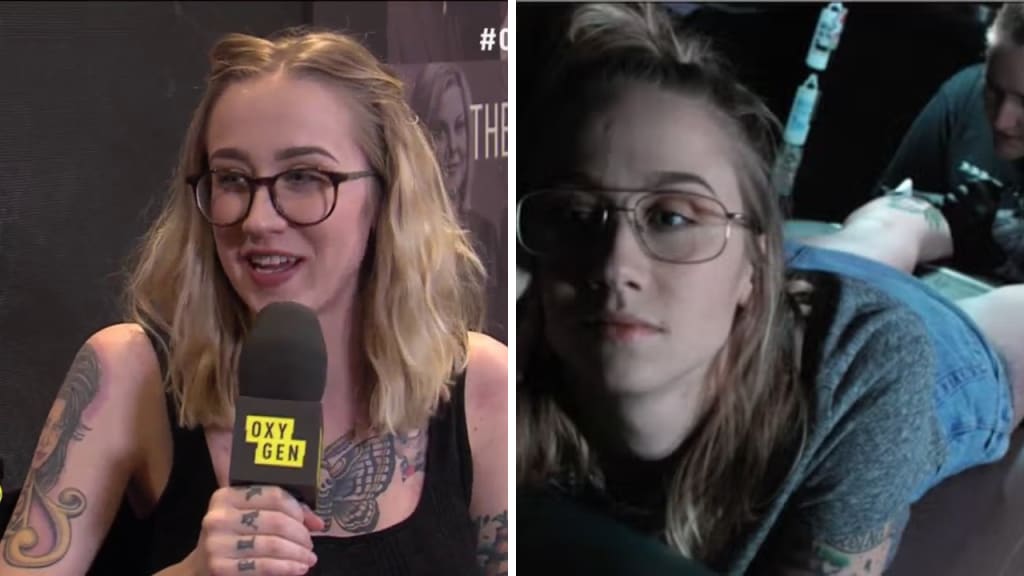A podcaster set out to find the truth about a woman’s death, but she decided it wasn’t murder
A Podcaster's Journey to Truth Takes an Unexpected Turn

In the expansive world of true crime, where mystery and investigation captivate audiences, the tale of Emily Nestor and her podcast, Mile Marker 181, took a dramatic turn, sparking a scandal that left the true crime community in disarray. Nestor, with her Appalachian charm and genuine curiosity, initially gained fame investigating the 2011 death of Jaleayah Davis. The podcast gained traction as it explored the possibility of a murder conspiracy, drawing in fans, sponsorships, and widespread attention. However, as the podcast progressed, so did the rift between Nestor and the Davis family, culminating in an unexpected twist — Nestor publicly declared her alignment with the official record, asserting that Davis' death was, in fact, an accident.
The fallout was swift and intense. The burgeoning online community of true crime enthusiasts turned against Nestor, labeling her a "True Crime Pariah." Despite her retreat from the public eye, a documentary, "Citizen Sleuth," was in the making, shedding light on the unraveling events behind the scenes.
Filmmaker Chris Kasick, initially drawn to the project as an opportunity to explore a unique voice in an emerging creative space, found himself in the midst of a story far more complex than anticipated. Drawing parallels to his past experience documenting the Theranos scandal, Kasick witnessed Nestor's journey firsthand. The documentary, set to premiere at SXSW, captures the unexpected twists and turns as Nestor grapples with her conscience and the ethical dilemmas of true crime storytelling.
As the podcast's narrative shifted, so did Nestor's internal struggle. The documentary follows her as she navigates the blurred lines between storytelling, audience expectations, and the pursuit of truth. The film raises questions about the consequences of the true crime craze, particularly in the podcast space, where narratives can quickly gain traction without the same scrutiny as traditional media.
The saga of Mile Marker 181 serves as a cautionary tale about the responsibilities of storytellers in the true crime genre. Nestor, initially spurred by local rumors and calls for justice from the Davis family, embarked on a journey that would take her from a small-town podcaster to a controversial figure within the true crime community. "Citizen Sleuth" explores the impact of true crime narratives on real lives, unraveling the complexities of storytelling in an age where anyone can become a citizen sleuth.
The documentary delves into Nestor's personal struggles as she grapples with the consequences of her storytelling choices. It portrays her as a character navigating a world where the pursuit of truth clashes with the expectations of a growing audience. The film captures her moments of introspection, highlighting the ethical challenges she faces in maintaining a balance between entertainment and responsible storytelling.
Kasick, reflecting on the project, emphasizes the documentary's unique meta layer, where the film itself becomes part of the narrative. The ethical quandaries faced by Nestor become a central theme, prompting a broader conversation about the impact of true crime narratives on communities and victims' families.
"Citizen Sleuth" encourages viewers to consider the broader implications of the true crime craze, especially in the podcast space, often referred to as the "Wild West" of storytelling. The film's exploration of Nestor's journey serves as a microcosm for the larger ethical dilemmas faced by storytellers in an era where narratives can quickly become viral sensations.
As the documentary unfolds, it prompts a necessary dialogue about truth-telling, the responsibilities of storytellers, and the potential consequences of narratives that captivate audiences. "Citizen Sleuth" goes beyond the scandal, aiming to provoke thoughtful discussions about the role of true crime storytelling in shaping public perceptions and the importance of maintaining ethical standards in the pursuit of justice.






Comments
There are no comments for this story
Be the first to respond and start the conversation.